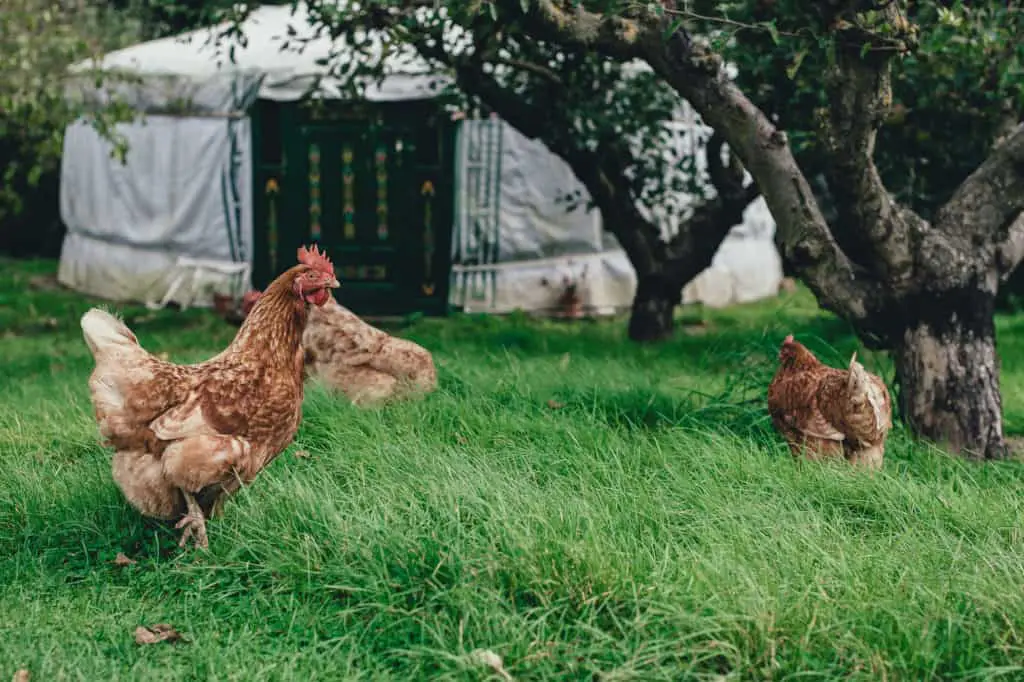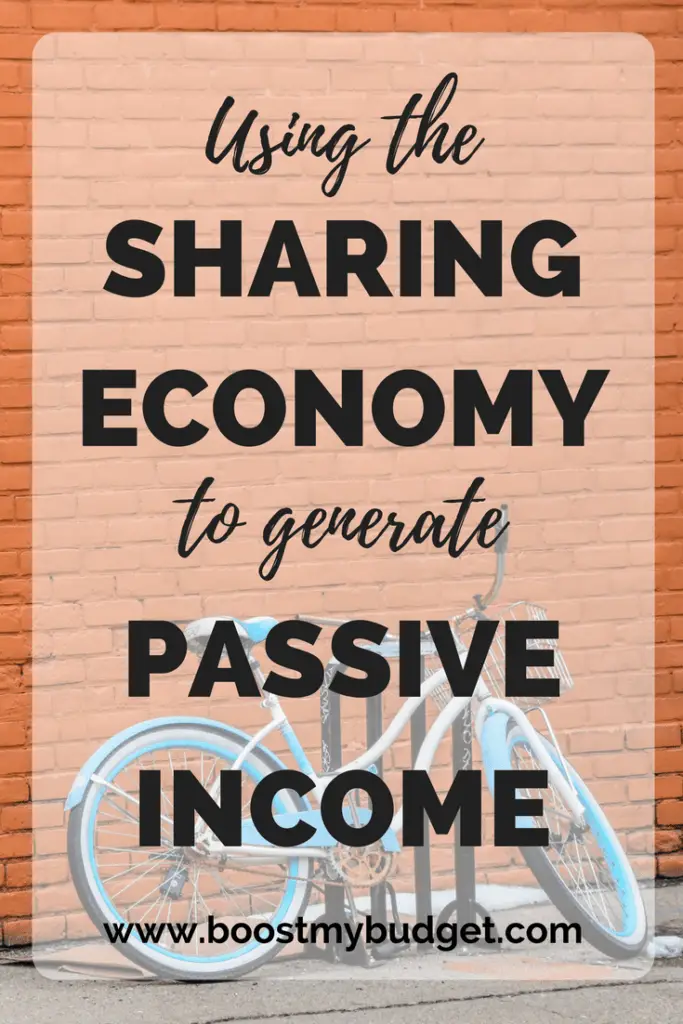Today I have a brilliant guest post by Tom from idle, all about how you can benefit from the sharing economy. Want to make an easy passive income frofm things you already own? Read on!
Recently, Boost My Budget’s article on 10 ideas to generate passive income mentioned renting out your driveway as a nice and easy way to make some extra cash. Today, we have a few similar ideas from the ‘sharing economy’. The simple idea is that you can rent out your items to someone else when you’re not using them.
1) Rent out your spare room
Renting out a spare room, or even your whole house/flat while you’re away, is usually the most profitable option on the sharing economy – and courtesy of Airbnb is probably the one you’ve heard of most often. The average Airbnb host in London earns just over £3500 per year; but even deep in the countryside, a typical spare room goes for at least £25 per night
Of course, while it can make you quite a lot of money, it can also require quite a lot of effort: changing bed-sheets, providing towels as well as making sure the room is tidy! Add to that the stress of having a stranger in your house overnight, and it’s clear that it’s not quite for everyone. Luckily, there are some other less intense options…
2) Rent out your car
There are now quite a few different apps and sites that are trying to help you make some money from your car when you’re not using it. And since our cars apparently spend 95% of the time parked, this could be quite often. A standard car on some of the more popular sites could easily earn you over £200 per month – the cost per day is around £20 even for the smallest, most basic cars, increasing to over £100 for your more exciting sports cars. (If you rented out your small car every day you would make over £7000 in a year!)
But what about insurance? Fortunately, these peer-to-peer car rental services always come with comprehensive insurance. That means that if there is any incident while your car is being rented, the insurance policy for the site supersedes your policy – you’ll be compensated for damage and it won’t affect your no-claims bonus. The driver (not you) is also required to pay any excess.

3) Rent out your home office space
If having someone in your house overnight is a little too much, you could consider renting your house out during the day instead. If your sofa or desk has nothing (and no-one) on during working hours, and you have a decent wifi connection, you could look at renting out that space to a freelancer, start-up or ‘creative’. This option is definitely better in the middle of cities, and in London it could earn you up to £20 per day.
While a home office space is the most common type of this rental, there are some people on these sites who want to use your space for other reasons – perhaps to take a quick nap on your sofa, as a space to film adverts/scenes from a film or even as somewhere to give physiotherapy sessions. Obviously people will tell you what they want to use your space for, before they turn up with a camera and a massage table!
4) Rent out your storage space
If you’ve recently been having a bit of a clearout of your loft, attic, cupboards or garage, you might be lucky enough to have some spare storage space. Thanks to the crazy prices you pay for self-storage, there are now a few sites offering the chance to store your things in other people’s homes. For a small space, you could easily earn £10 per week.
The best thing about this option is that once you arrange to store something, you receive a guaranteed fee every week for an extended period of time. You don’t have to reply to new bookings or messages, it really is passive income.
5) Rent out your garden
This one is quite niche, but also quite fun. If you’re not comfortable having people sleep in your house overnight, why not let them camp in your garden? You have to let them use your toilet (otherwise you would be an unlicensed camp site), but you can earn anywhere between £5 and £25 per night.
Alternatively, if you have a particularly big garden with large open spaces, you could consider renting it out for events – weddings, sports or summer BBQs.

6) Rent out your bike
While London has its Boris Bikes, most other places in the UK (and the outskirts of London) don’t have a useful bike-sharing scheme. To help with this, a few sites now let your rent out your bike while you’re not using it. For a very standard bike, you should get just under £10 per day, but for more high-value racing or mountain bikes, anything up to £50 per day is quite realistic.
For this one it’s good to have a look at the site’s terms and conditions – some require renters to pay a deposit before they rent the bike, others offer you insurance while your bike is being used.
7) Rent out your other things
These are harder to fit into one category, but there are plenty of places where you can rent out your ‘stuff’. The best options for this are things you don’t use particularly often, and are reasonable expensive to buy new, for example: drones, camera equipment, power tools, sports equipment, musical instruments, speakers or games consoles. The amount you can earn varies massively – from £100 per day for a high end drone, to £5 per day for a basic power drill.
Again, you should look at the site’s terms and conditions to find out what happens when there’s damage – whether you’re covered by a deposit or insurance.
8) Rent out your driveway
Like we’ve mentioned before, this can be a great way to earn a few extra pounds for that driveway you don’t use – especially if it’s near to a busy station, a sports stadium or even a hospital.
A good option for this one is to rent out your driveway while you’re at work. Even if you need to park your car on the drive at night, someone else might want to use your driveway while your car is away during the day.
If you add all of these options together, you could quite realistically make over £1000 per month. At that point, your income might start becoming a little less passive. Replying to all the messages and booking requests across potentially 25+ different sites can get quite overwhelming – it could turn into a part-time job in itself. The new site idle is designed to make this process much easier – helping you to sign up to all of these sites from one place, and grouping all of your messages and bookings onto one dashboard.
What else do I need to know?
Finally, there are a few common issues with renting out your things, with some quite interesting new solutions:
- Insurance – while most sites come with their own insurance, some still don’t. Fortunately, there are now some new insurance companies that will offer very short-term insurance to cover your items while you’re renting them out (check out Guardhog or Trov for more information).
- Access to keys – If you’re renting out your anything to do with your house or your car, it can sometimes be a hassle to physically hand over your keys to the person who wants to rent it. Luckily, there are now a few different types of services to help you with this. The first option is to buy a smart key box to attach to your house – so you can text the renter the code they need to get access to the key inside the box. Alternatively, you can sign up to a service where you can leave your keys with a ‘trusted neighbourhood shop’.
- Tax – The government recently introduced a rule that means the first £1000 you earn from the sharing economy is tax free – although the current status of this rule is unclear, so make sure you check requirements when you start making money. Otherwise, you would need to pay tax on your earnings.

